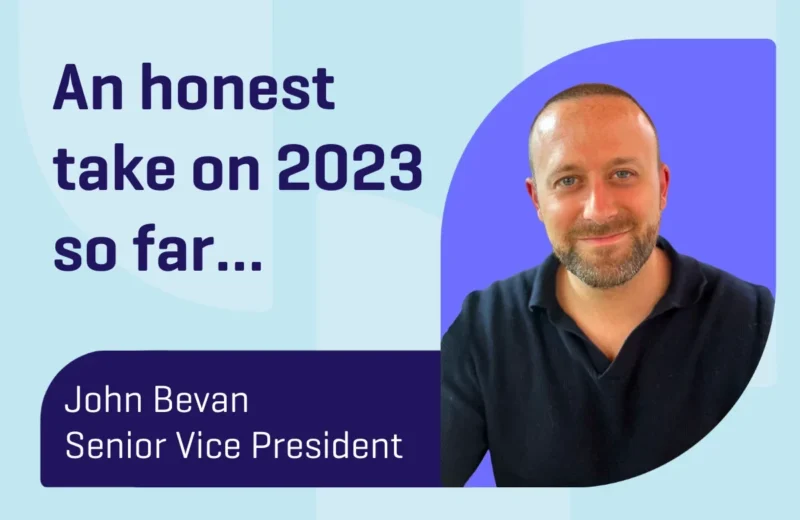With a global presence, and consultants hiring in various counties within Europe, the Danish Market being one of Parallel’s newer pursuits. To deep dive into all things Denmark and to find out how hiring differs compared to its Scandinavian neighbours, we sat down with two of the team and market experts, Charley Lucas (Principal Consultant, Scandinavia) and Cameron Paterson (Consultant, Scandinavia) to find out more!
Read part one of our interview where we discuss what challenges tech recruiters are facing (if any), and what trends we are seeing with the clients and candidates we work with. in Denmark.
What is it like to recruit for tech professionals in Denmark?
CHARLEY:
It seems the common consensus is that Danes care about their investment towards technology, the evolution within technology and maintaining their reputation as one of the worlds greenest, most sustainable countries, and a lot of that boils back down to technology. There’s still a large appetite for companies to grow and keep up with the pace that technology is moving every single day.
Like any European market, it’s difficult right now, there’s a lot of companies that are unsure about growing and yet want to invest into people while the economy isn’t in the best shape.
"Denmark is one of the forefront leaders in the world when it comes to work/life balance and corporate social responsibility"
Charley Lucas Principal Consultant, Scandinavia
CAMERON:
It’s an enjoyable market, Denmark has a lesser notice period Sweden for example. So things move lot quicker, there’s three of us that work in the Danish market. With the demand is there on both sides, we have good candidate pipelines and pool of clients.
When you talk to candidates in Denmark, they know what they want and what they’re looking for- they’re not open to literally everything in the world. There’s huge emphasis on a work life balance and the type of culture that they would be joining. I think it’s one of the biggest, if not the biggest factor I see on a daily basis in terms of the main motivators why someone would want to join a new workplace, there’s a really strong interest in that.
CHARLEY:
Overall we find it a pleasure dealing every single day with Danes. I’ve spent a bit of time throughout my career recruiting for the Netherlands and we find strong cultural similarities between the Danes and the Dutch, in a sense that people are very direct, they’re very self-assured, they know what they want and that really helps us to narrow our focus and match candidates with the opportunities that are right for them. I find them to be direct, yet very approachable, and maintain a very good sense of humor, so that’s always nice.
What are current trends you are seeing in Denmark when it comes to candidates or clients?
CHARLEY:
It’s September right now, and we’ve just gone through the Scandinavian summer. A lot of businesses have closed up shop – from a recruitment perspective– for the past six or eight weeks. We’ve noticed a little bit of a shift again, away from it being a job-driven market where customers can pick and choose between lots of candidates to a candidate short market now.
There are a lot of candidates in the market throughout the summer, and we’re seeing now that customers have less choice of who’s available because people are all back, and people are getting snapped up. We feel that’s where we’re strong with our customers because we spend a lot of time getting to know candidates not just those who are actively looking for a new role or have been made redundant, we get to know candidates that are passive in the market as well, we make it our mission to know everybody who’s anybody within our chosen specialisms. As a result, when customers do come to look, we can present to as many people as possible and yet not only find the right candidates, but also we can speak positively about our customers and create brand awareness throughout Denmark.
CAMERON:
Yes, something I’ve noticed, especially in and around Copenhagen in terms of the client side, is that Denmark is a frontrunner in terms of innovative companies, especially in and around software development. So, small firms that most candidates do know about, they’re highly competitive and really sought after. But, there’s also quite a diverse range of companies when you start to look a little bit outside the box of just the main ones. For such a small country, there’s some major players that Charley and I work with and talk to on a weekly basis, that hold a strong percentage of the market share in terms of both roles going out to the Danish market.
For relocators there’s a high demand for candidates to always move to Denmark due to their importance of work life balance. In essence, to put the candidate first that’s the biggest sell. A lot of the time that’s the biggest emphasis on a job ad, and they put a real effort into that. So, it’s really good for me and Charley in terms of selling companies to candidates, especially if they hit all the corporate social responsibility points that, all of them by government have a real incentive to do.
So the market is more candidate driven now?
CHARLEY:
I think it’s taken a bit of a shift. If you look back around the COVID pandemic, we had a lot of candidates being let go and becoming available into the market, companies had the ability to cherry pick. I feel like it’s drifted away from that a little bit, it’s coming back full circle to be more client driven and I feel it’s going to be candidate short by the end of the year. We’re seeing no slowdown in companies that are looking to grow their teams. If they have the budget and the confidence from the business to do so. We’re very well equipped to deal with either scenario, we’re not in a recession currently but we’re certainly heading into one.
I’ve also recruited around the 2009 financial crisis- therefore I’ve witnessed a similar sort of market, and there’s patterns that remain. I have been in many situations with trying to find people when lots of customers want to hire but there are no candidates around and vice versa. We are very well-equipped to deal with that and luckily for us, we’re spending a lot of time and effort on getting to know all the best candidates in every single pocket we can!
This helps for moments when there aren’t any candidates that are really actively looking to leave because they’re worried about job security and a little bit more cautious about making the next move. I always say to our candidates to give them that reassurance, that I have found (in over a decade or so in recruitment), the candidates that are more cautious about taking their next opportunity tend to make the better decisions for their career.






